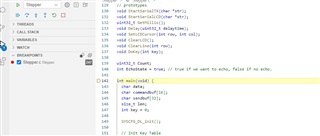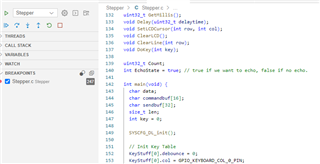Weird issue with Theia.
I have a program that has a function called by main.
If that function is commented out, everything is fine:
When that function is NOT commented, Theia does not show that I am holding at main:


I assume I am, since it shows it paused.
(ETA: I had the devil of a time getting both images in!)


